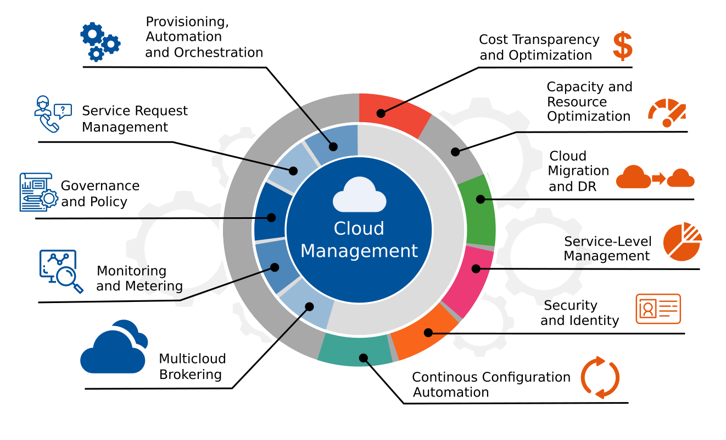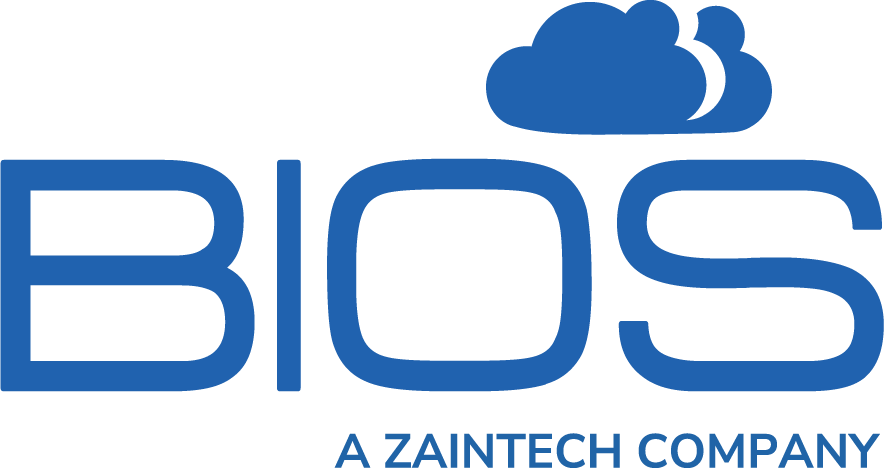
First of all, let’s start with the basics, what is Multi-cloud?
This one is pretty simple, multi-cloud is the concept of using of multiple cloud computing and storage services in a single architecture.
How did it evolve?
Well first came the concept of cloud, as companies became conformable with it and began to realize the benefits, much as the elimination of capital expenditure, the ability to scale up and down and the agility to provision workloads almost instantly. Today almost every company we speak to is using some elements of the cloud to run their business on. With that came concerns about governess and security and companies began to develop a hybrid cloud approach. Keeping some works loads on their premise and even building private clouds and using the public cloud for the rest. This then developed to a cloud first approach for many companies, where the preference became to use the cloud, be it private or public as the first choice for any application. Now businesses are beginning to use multiple public clouds due to the advantages this approach brings. Namely;
"By 2022 80% of companies leveraging the cloud, will have a Multi-cloud approach." Gartner
1. Freedom of choice
One key of the key advantages of a Multi-Cloud approach is it provides businesses with the freedom of choice. Cloud-hosting providers come in all different and shapes and sizes, but one shape and size does not fit all. Features like, billing, location, upload speed, size requirements and more influence what makes the most sense for each of your business needs. Rather than bend their business processes to fit a specific provider’s cloud provider, companies can choose the right provider for the right need.
2. Reliability
It doesn’t happen often, but it does happen, clouds can go off-line. Whether it be to technical glitches, ISP issues, DDoS attacks, hacks or a range of other things, it has been known to happen. Depending on how critical a particular application is, some companies wisely host them in multiple clouds. E commerce for example or any customer facing tool. Cross cloud Disaster Recovery is a another obvious choice. Multi-cloud make reliability achievable by eliminating single points of failure.
3. Flexibility
No business looks the same today as it did a 3 years ago. That includes their cloud requirements. As your business increases in size, expands to new locations or launches new units it may need different clouds that are best suited to those needs. For example, Hyper-scalers usually don’t make a point of answering the phone to provide advise. By employing a Cloud Managed Service Provider like BIOS, you can effectively develop a mix of private and public clouds to match your needs to the solutions that fit the best, and alter them as the needs change.
4. Eliminating Vendor Lock in
Imagine a company goes all in. It builds its entire IT Platform on one cloud. Using that clouds controls and security. Now that business realizes there’s a better solution or they become unhappy with the support or the costs become much higher than they initially thought (there’s an actual term for this called ‘bill shock’ and it’s the number one reason why companies move onto a cloud and then move back of it). Now that business has boxed itself in. It is now both time-consuming and expensive to move systems anywhere else. They have effectively put themselves in the position of having to accept any sort of restructuring of agreements or price schedules from that provider because they are locked into doing business with them. Multi-cloud prevents this.
5. Cost
This is the big one. Hyper-scalers come with great technology and innovation, such as Big Data Analytics, AI, Superb eCommerce development tools or perhaps state of the art Unified Communication. However, hyper-scalers also usually charge a premium and the costs can be difficult to understand as there is not only the cost of the workload but also other costs such as data ingest and usage costs. So if certain workloads, like file and print servers, don’t need these high end features, they can be hosted on more cost effective alternatives, some with all-inclusive billing. Using a Multi-Cloud approach allows companies to have access to the most advanced technology available at a price, but only where they need it.
It is these advantages of Multi-cloud that have lead Gartner to predict that by 2022 almost 80% of companies will have a Multi-Cloud strategy. But Multi-Cloud is not without its considerations namely;
1) Lack of visibility- can lead to cloud sprawl.
2) Unpredictable billing- which can lead to ‘Bill shock’
3) Governance- across multiple clouds can be a challenge.
4) Management- is complicated if not unified across multiple clouds
5) Security is perhaps one of the most important considerations. As applications and data migrate outside a company’s firewalls they become more vulnerable than ever if not properly secured.
Addressing the challenges of Multi-Cloud and unlocking its benefits
Luckily, there is a solution.
BIOS is a Cloud Managed Service Provider. With a 24x7 NOC and SOC in Dubai and Bangalore serving the Middle East. We not only help companies assess their cloud needs, help them migrate but also offer a full Managed Service Wrap around. We have also developed BIOS Multi-Cloud.
BIOS Multi-Cloud is a unified portal that will show you where all your workloads are located regardless of which cloud they are on. Allow you to deploy workloads on any clouds you use, define custom hardened workloads, see the prices of these workloads on various clouds and also ties into our Management and Security platform. However, this is just the surface of the solution. Behind it sits a dedicated Cloud Managed Service company offering 24x7 support and a Security Operations Center.



